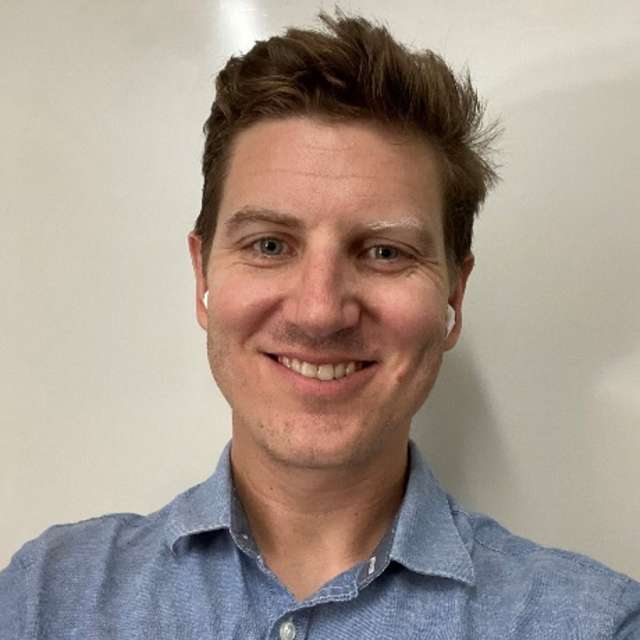Joshua Philip Hunsucker

Joshua Philip Hunsucker
Captain, U.S. Army
"I have strengthened my relationships with my kiddos."
Warrior Josh Hunsucker served in the military for six and a half years. He was deployed to Iraq during Operation Iraqi Freedom for 14 months in 2007 and 2008.
At the time Josh volunteered to serve, if you had asked him why he joined the military he might have said, “Perhaps because I want an adventure? Because I want to shoot guns, blow up stuff, and jump out of airplanes? Or maybe because I want to prove to myself that I can actually do all that stuff. Or because I don’t want to pay for college, or maybe I’m a glutton for punishment? Because I haven’t really sacrificed or done anything to earn what life handed me? Because I don’t really know what I want to do when I grow up? Maybe because of 9/11? Because I like free t-shirts? Because I am competitive? Because it seemed like the right thing to do at the time? Because I have to turn pro in something other than sports?”
If you ask him today, you might get a more obtuse answer, delivered with a quizzical smile. Something like “I don’t know…because of Bob Dylan, Bill Russell, William Sherman, Al Attles and/or Tim O’Brien? Or maybe it was the GI Joe PSAs? Could it have been because of Bill Walton, Jerry Rice, or Jalen Rose? Or Kathleen Hanna, Robert Hunter, or Kris Kristofferson? Maybe the Dream Team, Desert Storm trading cards, the Wu Tang Clan, or even Top Gun? Or because I didn’t think the government wouldn’t start and continue an unjust war in Iraq, notwithstanding the available facts? Because of some moral obligation to some words written hundreds of years ago? Because Green Day hadn’t released American Idiot yet? Because of the free meal on Veterans Day? Because I always wanted to experience something super dark, violent, and dehumanizing- and then take the rest of my life trying to wrap my mind around it, explaining it to other people, trying in vain for years to prove its impact on me so I can collect on my end of the contract, feeling confused by unknowing praise and prima facie gratitude, and advocating/educating why ‘we’ should try to avoid war if at all possible (or to at least properly budget for the post-service care of the gangsters of capitalism sent to do the killing)? Because I always just kind of knew it’s what I wanted to do? Who knows why anyone does anything?”
Josh heard about UCLA Health’s Operation Mend through his wife, Kelly. “Several times for several years,” he says. He is, in Kelly’s words, “EXTREMELY” grateful for her love, persistence, patience, and determination to get him to Operation Mend. He is generally grateful for all those things about her, too.
Josh applied to Operation Mend because “after over a decade of various modalities of therapy I still felt stuck and was burnt out. It felt like therapy had been just a side project, the waves kept crashing on me, I couldn’t tread water anymore, and I needed a break to go to ‘mental health grad school.’ ”
His experience with the program was intensive, difficult, and rewarding. The most significant thing he learned through Operation Mend was that intellectualizing his combat experience was not sufficient to process the trauma.
“Prior to Operation Mend,” Josh says, “through more therapy hours than I thought humanly possible, I learned to identify difficult emotions — ‘name it to tame it,’ as they say in the industry — but I had not fully opened myself up to feeling the emotions I had described over the years. In my first one-on-one session at Operation Mend, my therapist watched and heard me avoid an emotion and quickly change the subject. She stopped me and told me I had to sit with that emotion if I was going to get anything out of the therapy. ‘But I don’t like how that makes me feeeeeel,’ I whined. ‘Sit with it, and eventually you will.’ It felt just like what a coach would have told me if my technique was wrong, or if I needed to push harder. Once I really figured out how to do the therapy, I felt like I could see a way forward. Then I just had to do the thing and keep going, which is easier said than done.”
Josh is nearly two years out from Operation Mend. He feels like he still has a long way to go, but he says that is because he is “trying to go pretty far.” Despite some setbacks, frustrations, and more loss, he feels significantly better because he is once again enjoying the process of showing up and can see the progress.
“I have strengthened my relationships with my kiddos,” he says. “I have maintained a weekly therapy routine; sought additional therapy modalities from the VA; started running consistently again, started writing again — including poetry, essays, plays, sketch comedy masked as continuing education, and long-winded bios for would-be donors. I began making art, started sharing my story, left my previous job for one that is more purpose driven and less stressful, reconnected with friends (even made a couple new ones), and became a little more social. My calendar game is sharp, and my patience per day average (an advanced statistic) is up. And that's not nothing.”